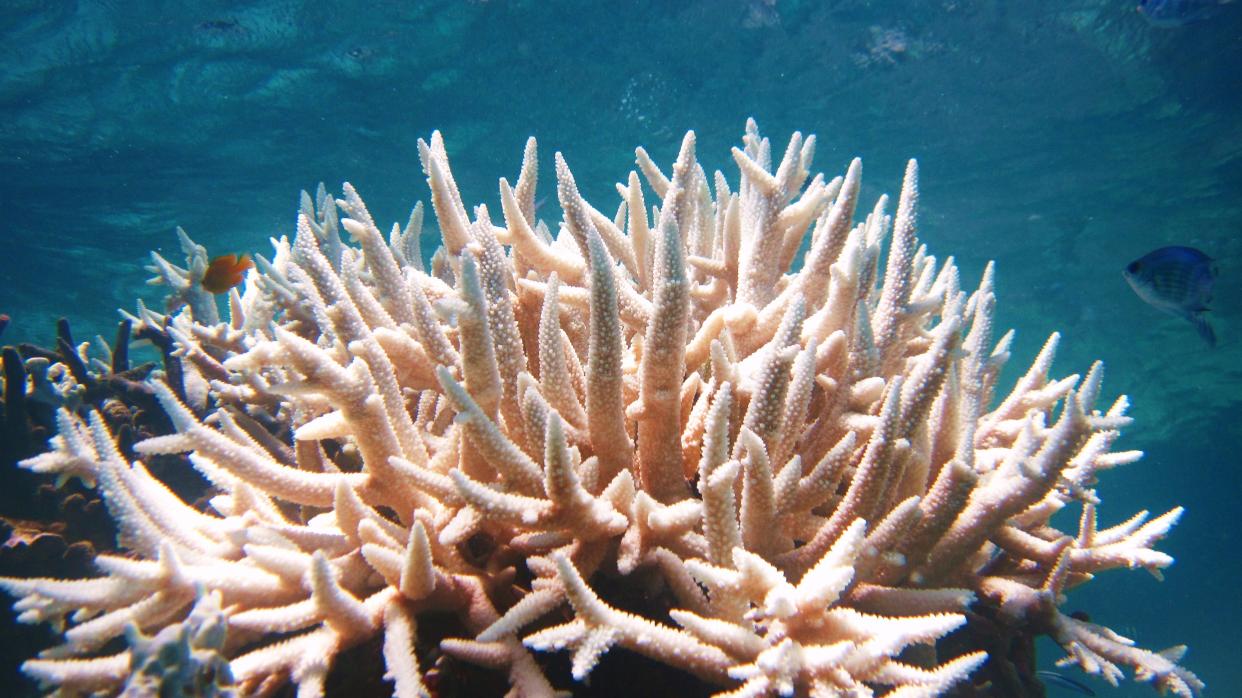'100% coral mortality' found at Florida Keys reef due to rising temperatures, restoration group says
A coral reef restoration group is warning that rising ocean temperatures are putting Florida's coral reef in danger of catastrophic loss.
The Coral Restoration Foundation, a group centered around restoring and protecting Florida's coral reefs, said it visited the Sombrero Reef off the Florida Keys July 20 and found "100% coral mortality." The discovery means all corals on the Sombrero Reef have died and the reef will not recover on its own without active restoration, the foundation said.
Phanor Montoya-Maya, a restoration program manager at Coral Restoration Foundation, said in a release from the group that almost all of the corals in the Looe Key Nursery in the Lower Keys have also been lost. Corals in the Upper Keys, where the water is cooler, have not yet declined as much, and the foundation is now focused on rescuing corals from nurseries and relocating them.
Atlantic Ocean current could collapse: How you may endure dramatic weather changes
Scott Winters, CEO of Coral Restoration Foundation, said he hopes the coral reef's dire condition sparks investment in restoration and conservation efforts, "including our precious coral reefs."
"This is not a partisan issue; everyone will be affected. The climate crisis impacts our way of life and all life on Earth," Winters said.

Sombrero Reef attracts tourists, snorkelers
Located off of Vaca Key in Marathon, Florida, the Sombrero Reef is a tourist destination with charters and snorkeling tours available. According to the NOAA, the reef is classified as a Sanctuary Preservation Area, which covers "discrete, biologically important areas that help sustain critical marine species and habitats." The Sombrero Reef is home to branching and boulder corals.
Florida's coral reef system is large, stretching 350 miles from the Dry Tortugas off the coast of Key West to Martin County, north of Palm Beach on the Atlantic side of the state. According to the Florida Fish and Wildlife Conservation Commission, the reef acts as a buffer for the coastline during storms and provides shelter, food and breeding sites for a number of Florida's marine species.
In addition to rising ocean temperatures, coral are also threatened by stony coral tissue loss disease, which the Florida Fish and Wildlife Conservation Commission says has killed millions of coral colonies in the last seven years.
The Florida Keys are currently under a bleaching alert, according to the NOAA's bleaching heat stress map. The area is under an alert level 2, the highest alert category, now through the next 12 weeks.
In 2019, the NOAA announced a $100 million plan to restore as much as 3 million square feet of coral on seven reefs, including Sombrero Key. Mote Marine Laboratory & Aquarium will use $7 million of the federal grant over the next four years to restore coral and the aquatic habitat along the Florida Reef Tract in the Florida Keys, the Sarasota Herald-Tribune reported in May.
Coral reef study: There's way more tiny life on Earth than scientists had thought
What is coral bleaching?
Coral bleaching occurs when corals are stressed, causing them to expel the symbiotic algae living in their tissues and turning completely white. Stressors can be due to changes in conditions, including temperature, light or nutrients, according to the NOAA.
Not all bleaching is due to warm water, and some can be caused be temperature shifts the opposite direction. In January 2010, water temperatures in the Florida Keys dropped -6.7 degrees Celsius, causing coral bleaching that led to some coral death.
This article originally appeared on USA TODAY: Florida Keys' Sombrero Reef at '100% coral mortality,' group says







